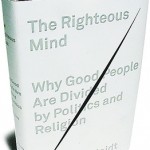Conversion to Judaism is noble process that represents a person’s desire to find shelter under the wings of the Divine Presence as manifested through the unique pathway of the Covenant at Sinai.1 For a long period of Jewish history it took quite an exceptional person indeed to seek out conversion to Judaism. Jews lived in bitter and harsh conditions, suffering persecution and discrimination at the hands of almost every country they found themselves in. Hence, the Talmud teaches that when a person comes to convert, one makes it very clear to them how hard it is to be a Jew in the contemporary world.2
It is only within the modern context of the time that we are living in, that the Jewish community finds many people at its door desiring a relationship with God through Torah and a life of mitzvot.3 What framework are we to view the act of conversion? Is it an onerous act leading to a life of burden and obligation? Are we to view it solely in a negative framework?
Rabbi Joseph Soloveitchik zt”l offers a different paradigm for viewing conversion.4 It is one that I believe reflects the reality that we occupy and the world that we live in. Rabbi Soloveitchik begins by quoting the Midrash on the Book of Ruth in asking:
R. Zeira said: This megillah [of Ruth] does not come to determine impurity or purity, prohibited or permitted acts, so why was it written? In order to teach us the great reward for acts of kindness.5
Yet, Rabbi Soloveitchik points out that we do indeed learn a great deal of legal material from the Book of Ruth, namely, the foundational legal principles for conversion itself!6 Rather, it must be that what we learn from the Book of Ruth has less to do with the foundational legal principles for conversion and more the definition of the nature of conversion itself. We learn from the narrative of Ruth that conversion is primarily an act of benevolence, an act of loving kindness.
 Boaz, a man who would eventually come to protect and shelter Ruth, declares the following upon discovering Ruth working towards protecting and sheltering him: “May you be blessed of the Lord, my daughter; your latest act of kindness is greater than the first… (Ruth 3:10)” It is clear what her most recent act of kindness was that Boaz refers to, but what was her first act of kindness? Rabbi Soloveitchik explains that her first act of kindness was the benevolence she bestowed upon herself by drawing close to God through conversion.
Boaz, a man who would eventually come to protect and shelter Ruth, declares the following upon discovering Ruth working towards protecting and sheltering him: “May you be blessed of the Lord, my daughter; your latest act of kindness is greater than the first… (Ruth 3:10)” It is clear what her most recent act of kindness was that Boaz refers to, but what was her first act of kindness? Rabbi Soloveitchik explains that her first act of kindness was the benevolence she bestowed upon herself by drawing close to God through conversion.
Conversion is, and will always remain, about an acceptance of the “yoke of Torah” and the “yoke of the commandments.” It is, and will always remain, about becoming a part of the life of the Jewish people and accepting the fate of the collective Nation of Israel as the same as the fate of one’s self. However, the turn of time and the present reality have made it possible for many more people to see Judaism positively and grasp its transformative power to better their lives and their connection to God. This is a tremendous blessing and we ought to view conversion within this framework presented by Rabbi Soloveitchik as an act of loving kindness, as a gift bestowed upon those who choose to accept it.7
















